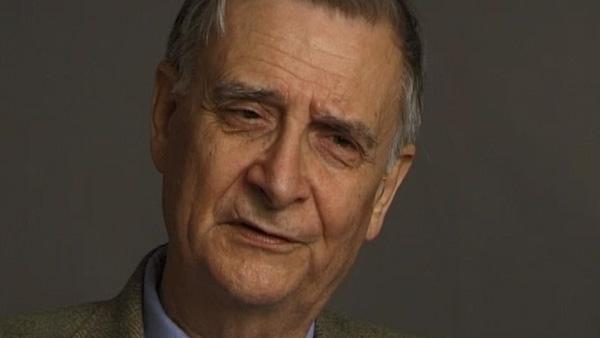NEXT STORY

A grand tour with Thomas Eisner
RELATED STORIES

NEXT STORY

A grand tour with Thomas Eisner
RELATED STORIES


|
Views | Duration | |
|---|---|---|---|
| 1. I never grew out of my bug period | 6 | 657 | 05:04 |
| 2. 'If you don't like mathematics, don't give up' | 2 | 839 | 02:59 |
| 3. A grand tour with Thomas Eisner | 1 | 296 | 05:23 |
| 4. Eating a big green katydid | 78 | 02:57 | |
| 5. Discovering ant colonies | 218 | 05:05 | |
| 6. Why I study ants | 362 | 01:09 | |
| 7. The Ants | 249 | 03:05 | |
| 8. Our book receives the Pulitzer Prize | 1 | 231 | 02:18 |
| 9. Fieldwork is exhilarating | 196 | 03:07 | |
| 10. The truly grand experience of my career | 207 | 06:09 |

I want to emphasise one thing, and then another. And the one thing is to be a successful scientist you need to do what you like to do. If you don't like mathematics, don't give up. That doesn't forestall your being a scientist at all. Because I have, at best, average mathematical ability, it comes hard to me. And if you really don't have a taste for laboratory work, white coat, experiments, measuring, and so on, and a lot of very promising scientists do not have a taste to be an experimental scientist, don't worry about it. If you do have a taste for mathematics or physics or chemistry or getting in a lab right away and titrating and watching cultures grow... go that way, wonderful, great career ahead. But if on the other hand you prefer the outdoors, if natural history is what you really would like to do, the world awaits you. And more so now than ever. Never mind that science has as its primary language mathematics. It has other languages as well, and it has a requirement overall for gifts often lacking in those who are enamoured of mathematical analysis and laboratory work. Namely, intuition, the ability to recognise patterns. And above all, a lifeline... a lifetime devotion to fine detail of the wonders of the natural world. I'd like to say that if you want to do... be an entomologist or work on nematode worms... nematode worms are little miracles of themselves. Do you want to go down to the level of bacteria? A rotting pine stump in the woods is a universe. You can spend a lifetime in a Magellanic voyage around that one pine stump and just spew out one important scientific discovery after another. Let the others, and I'm speaking to future naturalists and those who are thinking of... students who are thinking of going into natural history, let the others worry about partial differential equations and titration. You go that route because that provides unique knowledge, unique experience, and furthermore, a large part of science of the 21st century is going to be synthesis. We are entering an age of synthesis. Of the analysis of complex systems. And that's going to require enormous amounts of detail and attention to detail and the way things fit together.
EO Wilson (1929-2021) was an American biologist, researcher (sociobiology, biodiversity), theorist (consilience, biophilia), naturalist (conservationist) and author (two Pulitzer Prizes). His biological specialty was myrmecology, the study of ants.
Title: 'If you don't like mathematics, don't give up'
Listeners: Christopher Sykes
Christopher Sykes is a London-based television producer and director who has made a number of documentary films for BBC TV, Channel 4 and PBS.
Tags: Ferdinand Magellan
Duration: 3 minutes
Date story recorded: 2000
Date story went live: 22 May 2018